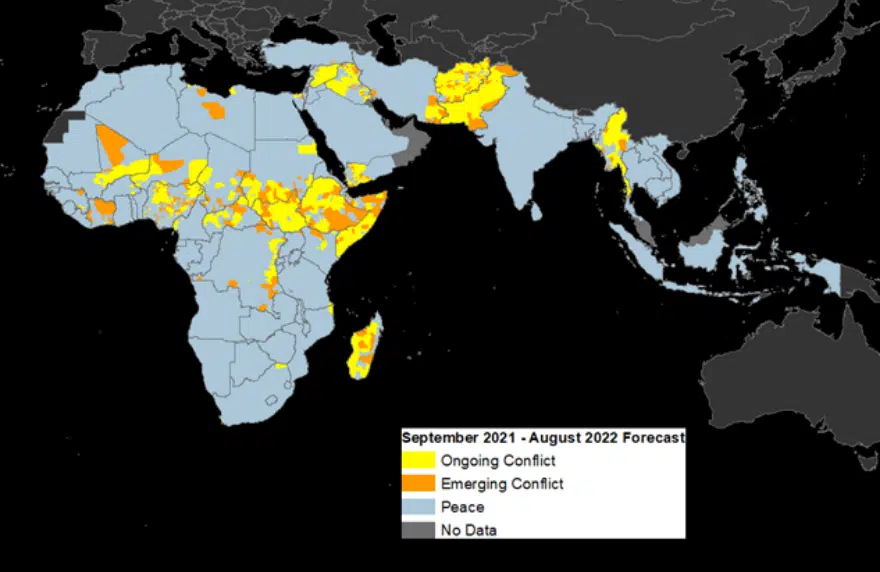Tension over water scarcity is increasing across the globe. A new system flags up where this threatens to erupt into violence, reports The Guardian. Researchers from six organisations, including HCSS, have developed an early warning system to help predict potential water conflicts as violence associated with water surges globally.
The Dutch government-funded Water, Peace and Security (WPS) global early warning tool, which was presented to the UN security council before it was launched formally last month, combines environmental variables such as rainfall and crop failures with political, economic and social factors to predict the risk of violent water-related conflicts up to a year in advance.
It is the first tool of its kind to consider environmental data, such as precipitation and drought, alongside socio-economic variables, a combination lacking in previous tools designed to predict water conflicts. It is available online for the public to use, but is aimed more specifically at raising awareness among policymakers, and people and parties in water-stressed regions.
The tool has already predicted conflicts that are likely to happen in 2020 in Iraq, Iran, Mali, Nigeria, India and Pakistan. Developers claim an 86% success rate in identifying conflict zones where at least 10 fatalities could occur.
The WPS tool was developed in a collaboration between the Dutch foreign ministry and Deltares, IHE Delft, International Alert, The Hague Centre for Strategic Studies, Wetlands International and World Resources Institute.
Read the full article in The Guardian here.




